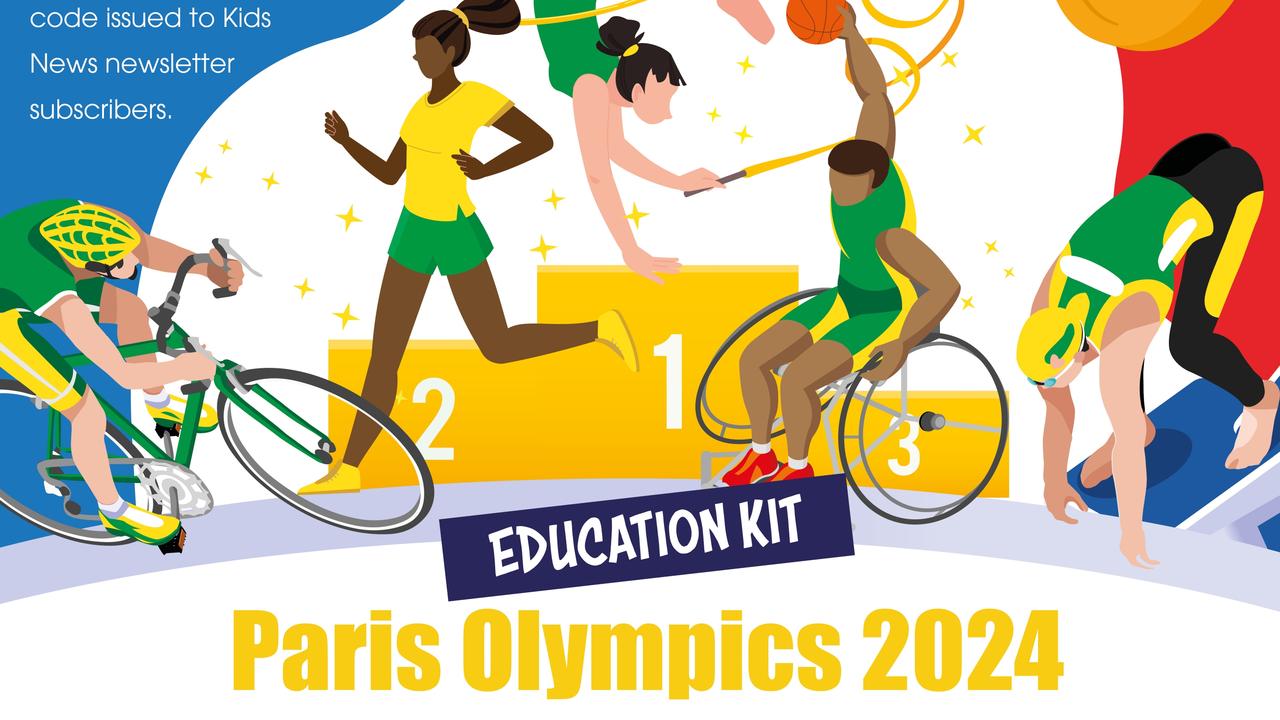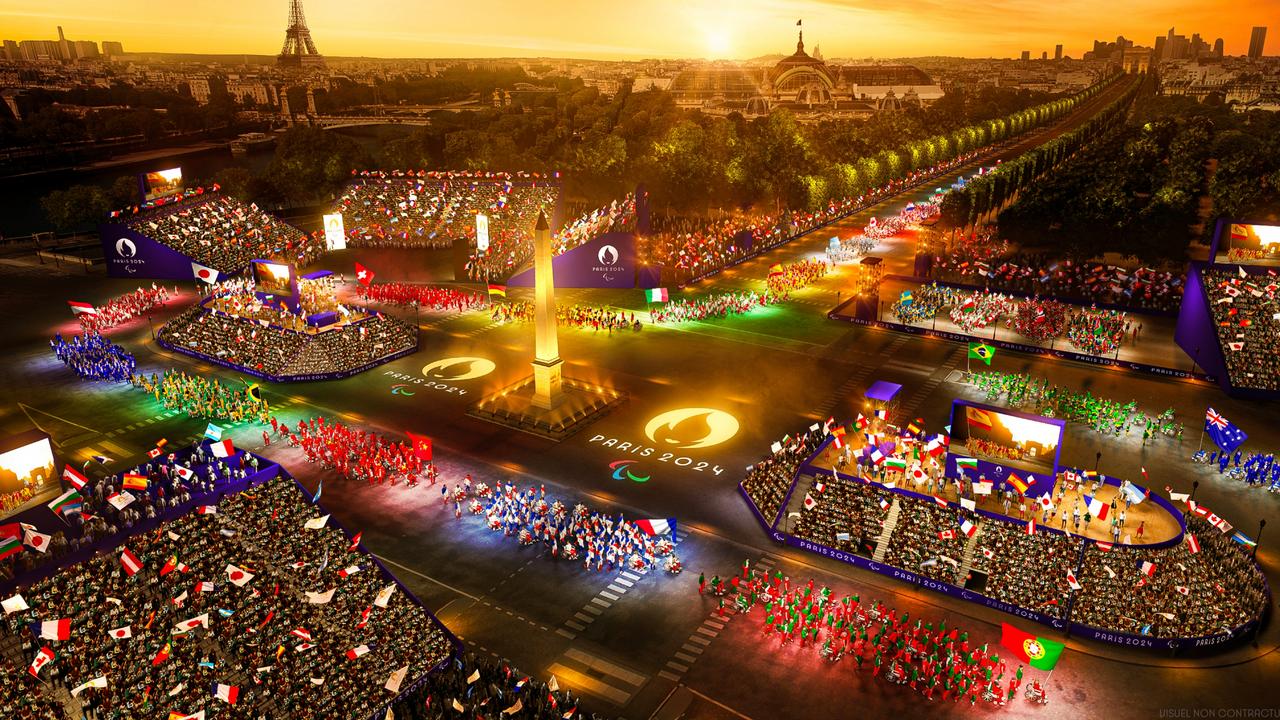Olympics Part 8: Australia’s Olympic Games leave their mark
PART 8: We’ve been lucky enough to host two Olympic Games, with the 1956 Melbourne Games and the 2000 Sydney Games both playing an important role in Olympic history
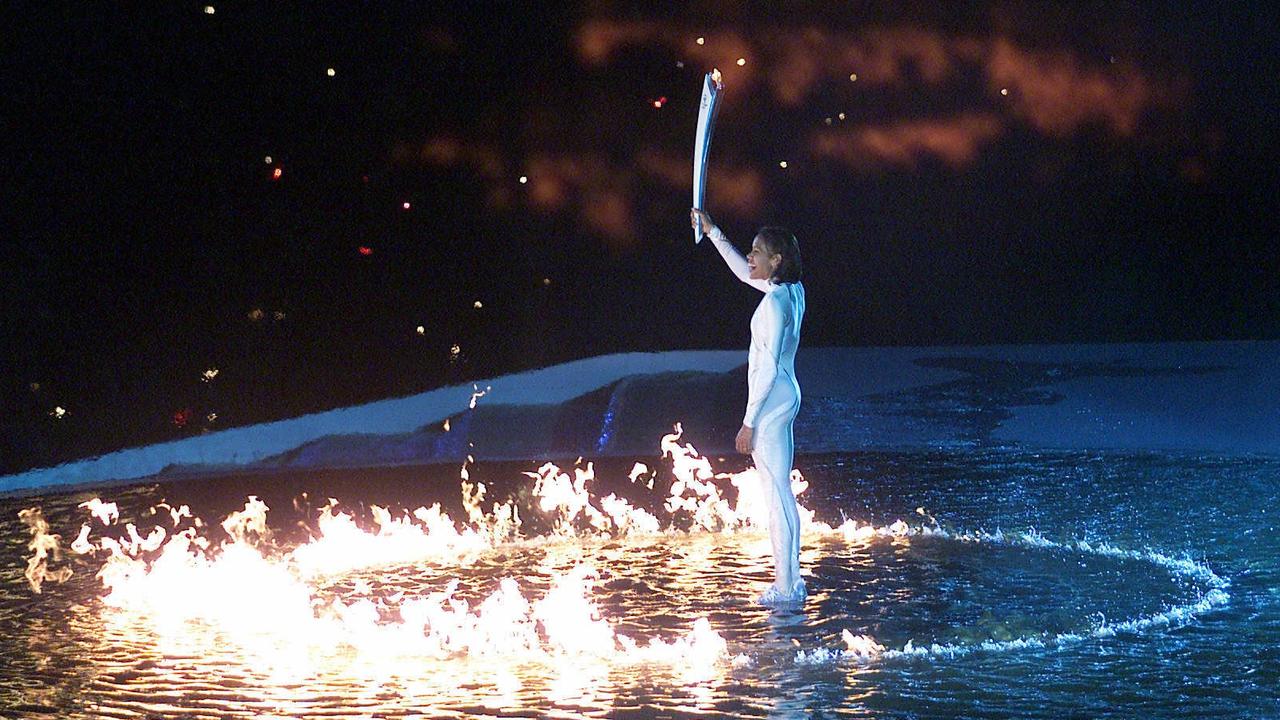
READING LEVEL: GREEN
Australia has been lucky enough to host the Summer Olympic Games not once, but twice – first in Melbourne (in 1956) and later in Sydney (in 2000).
Both Games were considered a big success.
Many Australians still have happy memories of the Sydney Olympics.
A highlight was undoubtedly Indigenous sprinter Cathy Freeman, dressed in a futuristic hooded body suit, winning gold in the women’s 400m sprint while the nation held its breath – and then exploded with joy!
1956 MELBOURNE OLYMPICS
When Melbourne won the bid to host the modern Summer Olympics, it was a massive coup* for Australia.
It was the first time the Games had been held outside of Europe or the US and the first time they had been held in the Southern Hemisphere.
These were the Olympics at which some of Australia’s athletes became legends, including swimmers Dawn Fraser and Murray Rose and sprinters Shirley Strickland and “Golden Girl” Betty Cuthbert (who won an outstanding three gold medals).
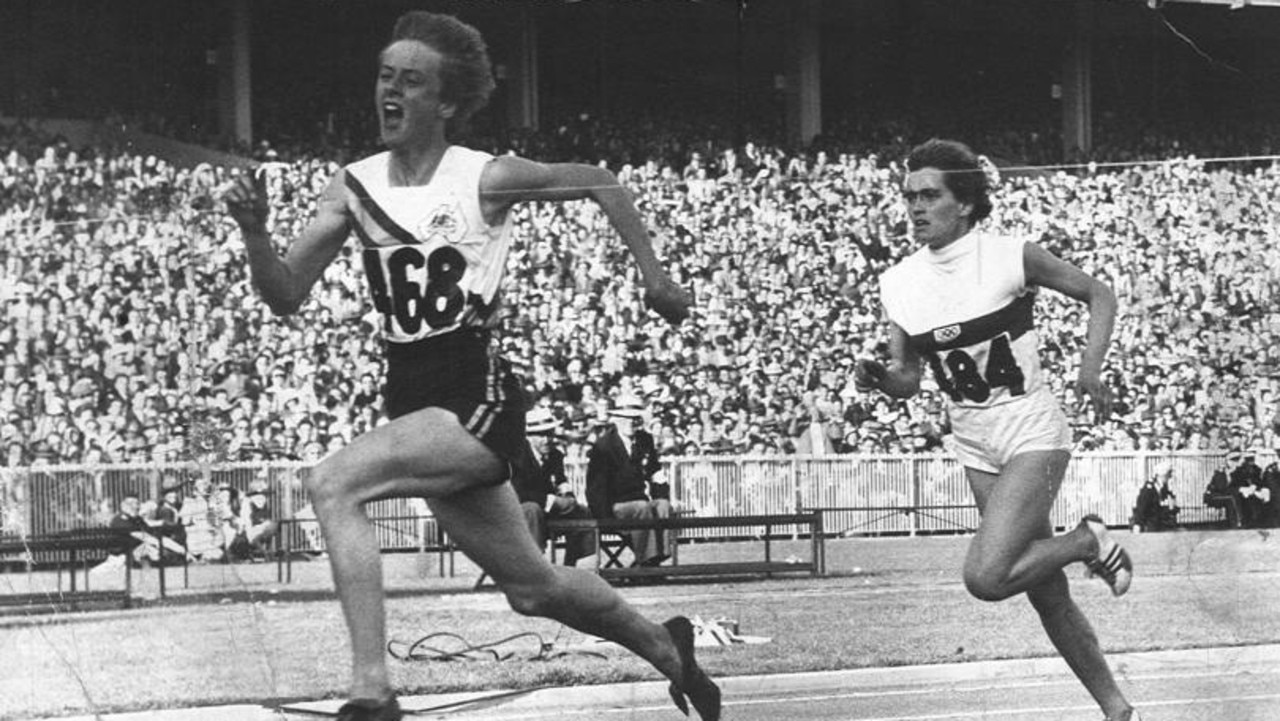
The record breaking Australian team won so many medals (35, including 13 gold) that Australia ended up coming third on the overall medal table, behind the Soviet Union and the US – still the highest on the table we have ever been!
In total, the Melbourne Olympics saw 3314 athletes from 72 nations taking part in
151 events in 17 sports.
There were fewer participants than other Games. This was because Australia was remote and because some countries boycotted* the Games to protest against invasions in other parts of the world.
Australia, however, had its biggest team up to that point: 325 athletes.
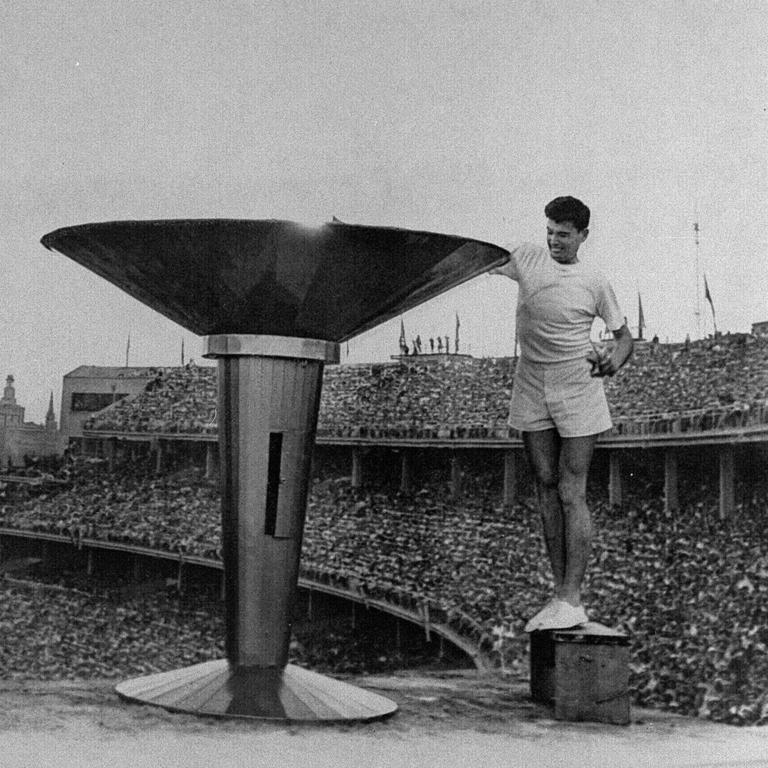
Interestingly, the equestrian events were not held in Melbourne or even Australia. They took place in Stockholm, Sweden, because Australia had strict rules about quarantine* for horses.
It was at the closing ceremony of the Melbourne Games that a new tradition was created. All the athletes walked together for the first time (rather than in their country teams) after an Australian schoolboy suggested the idea to the organisers. This is still a much loved Games tradition, symbolising friendship and connection.
In 1956, television was introduced to Australia – just in time for the Olympics – but not everyone had a TV set. Many people watched the Games on TV in places like shopwindow displays or neighbours’ homes.
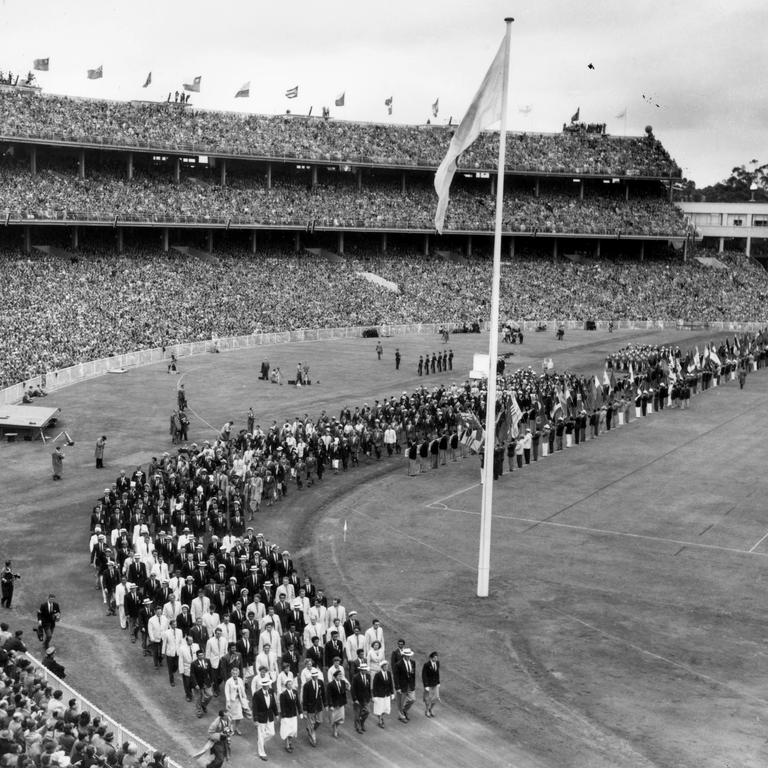
2000 SYDNEY OLYMPICS
The Sydney Olympics was one of the happiest events in Australian history.
The stunning city of Sydney was showcased* to the world and Australia won more medals than ever before (or since).
We collected 58 medals, including 16 gold, which took us to fourth on the overall medal table, behind the US, Russia and China.
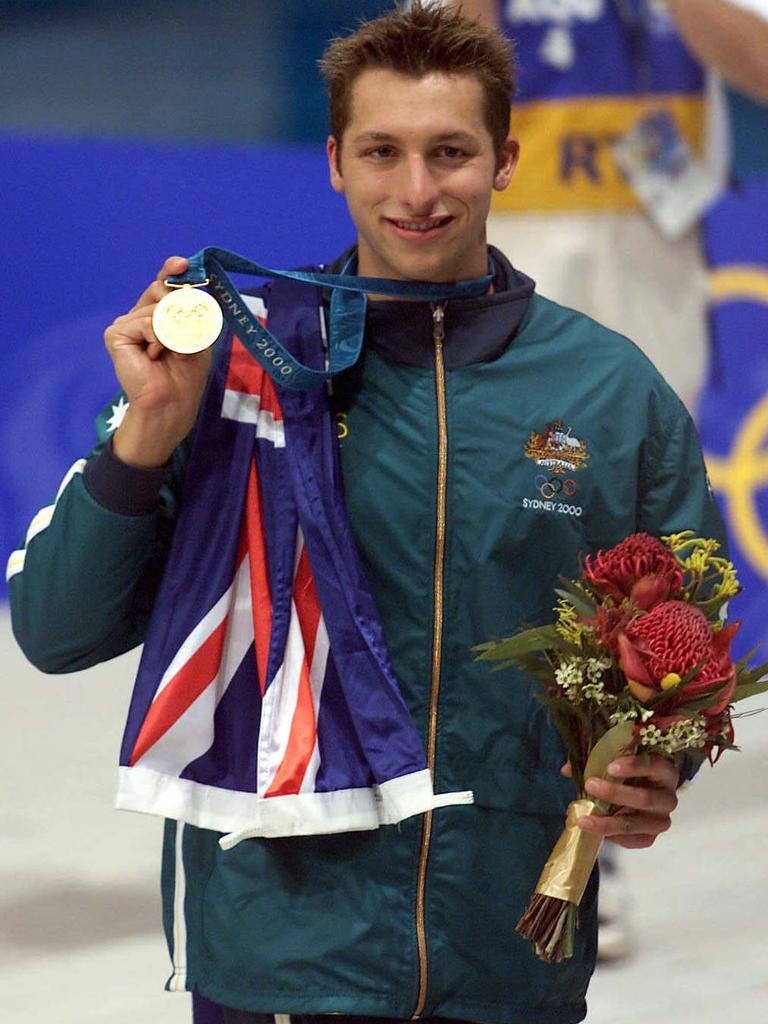
The two most celebrated Australian champions were Cathy Freeman and swimmer Ian “Thorpedo” Thorpe.
Freeman’s heart-stopping win in the 400m women’s sprint was the pride of the nation, while Thorpe’s size-17 feet propelled him to five medal wins (three gold and two silver) and superstar status.
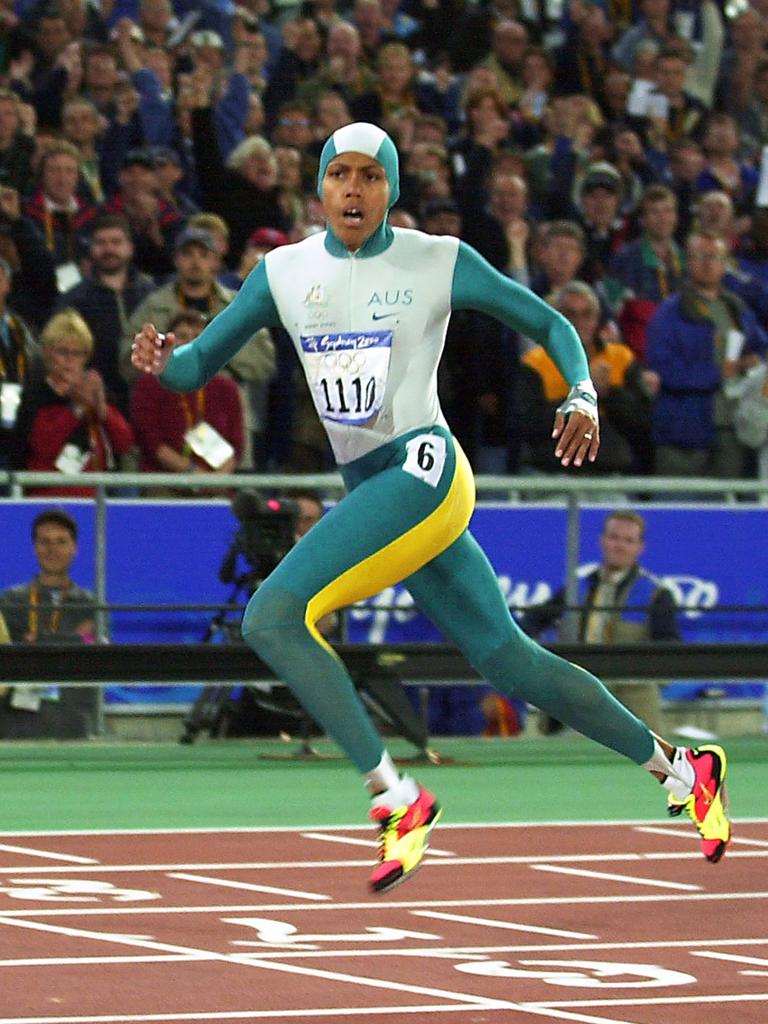
The Sydney Olympics saw 10,651 athletes taking part in 300 events in 28 sports.
More nations than ever took part: 199. And the most tickets ever were sold: 6.7 million.
In an entry for the local record books, the Australian team had 632 athletes – still the largest team we’ve had.
While not many people around the world had a television during the Melbourne Olympics, by the 2000 Sydney Games things were very different. About 3.7 billion people from 220 countries tuned in to watch the Games on TV.
COMPARING THE TWO
In the 44 years between the Sydney and Melbourne Games, the number of participants and competitions exploded.
Compared to Melbourne, Sydney featured a massive 7337 more athletes, 127 more nations, 149 more events and 11 more sports!
Over the decades, athletes have become faster, higher and stronger, and this can be seen in the event results.
For example, in 1956, the men’s 100m sprint was won in 10.62 seconds, while in 2000 it was won in just 9.87 seconds.
In 1956, the winner of the women’s long jump had a jump distance of 6.35m, while in 2000, the winning distance was 6.99m.
MUSIC LESSON
It’s an image from the Sydney Olympics that many Australians will never forget.
The Australian men’s swimming team had just come first in the 4x100m freestyle relay, defeating the Americans.
To mark their victory, the four Australian swimmers played air guitars, which is when you pretend to play a guitar.
The cheeky moment was a response to one of the American swimmers, who had earlier said the Americans wanted to smash the Aussies “like guitars”.
Well, the Americans didn’t win and the Aussies had the last laugh!
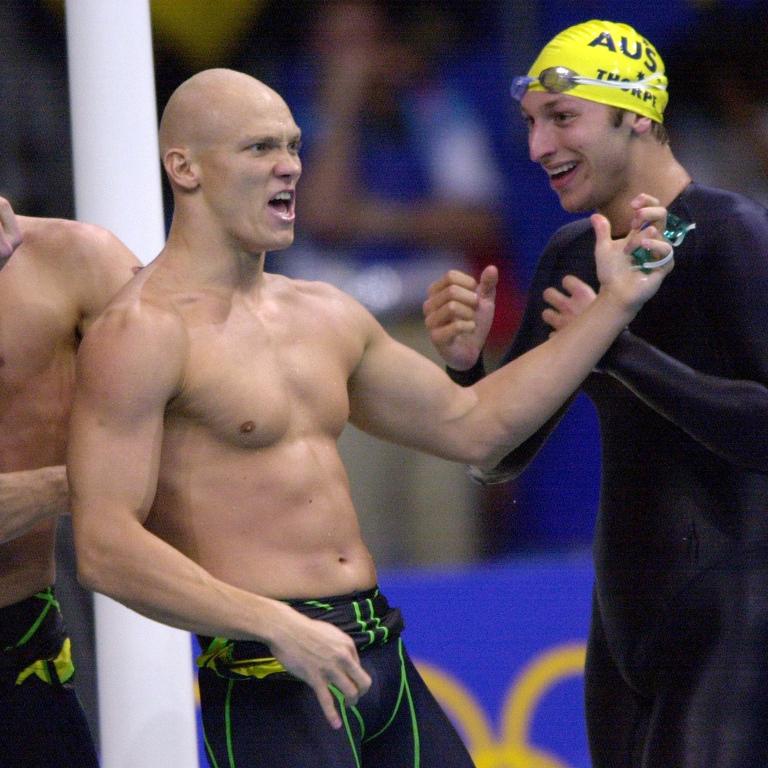
THIRD TIME LUCKY
Australia will hold the Olympics for the third time when Brisbane hosts the Games in 2032.
Other countries, including Qatar, Hungary and China, were interested in hosting the 2032 Games. But, after proceeding through various bidding stages, Brisbane was the only city being considered by the International Olympic Committee, which chooses the host.
A vote by IOC members in Tokyo on July 21 confirmed Brisbane as the host city for the 2032 Olympic Games.
The Queensland capital’s good masterplan, public support, great weather and high number of existing venues all helped win over the IOC members.
GLOSSARY
- coup: successfully achieve something difficult
- boycotted: withdrew, decided not to attend as a protest
- showcased: displayed
EXTRA READING
How modern Games became biggest show on earth
Friendship, respect and excellence drive the Games
Olympic medals go green in Tokyo
Celebrating Australia’s Olympic heroes
QUICK QUIZ
- Which two Australian cities have hosted the Olympic Games?
- Which years were the Games hosted in Australia?
- Name one of the Australian stars from each of the Games we have hosted.
- Which other Australian city is being considered to host the 2032 Games?
- Why did the men’s 4x100m swimming team play air guitars?
LISTEN TO THIS STORY
CLASSROOM ACTIVITIES
Refer to the accompanying Olympics Education Kit classroom workbook with 25 activities. It’s free when teachers subscribe to the Kids News newsletter.
